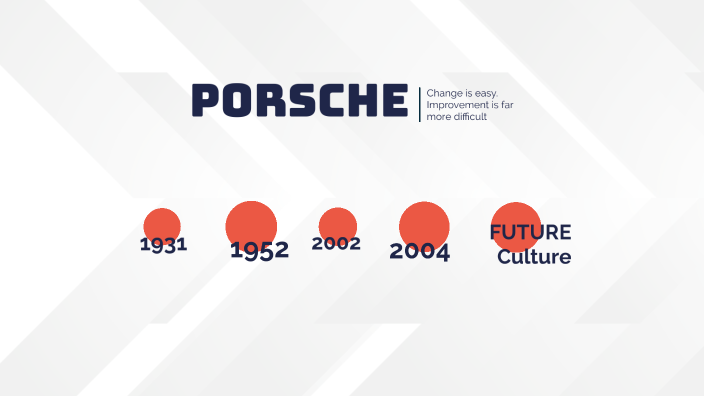Global Competition For US Researchers Heats Up Post-Trump Funding Cuts

Table of Contents
Reduced US Funding: A Catalyst for Brain Drain
Decreased US research funding has had a devastating impact on research institutions and researchers alike. The consequences extend far beyond mere budget limitations; they are fundamentally reshaping the global scientific landscape. This reduced funding acts as a catalyst for a significant "brain drain," pushing top scientific minds to seek opportunities elsewhere.
-
Decreased grant opportunities for early-career researchers: Young scientists, the future of innovation, face increasingly difficult odds in securing crucial funding for their projects, hindering their career progression and potentially forcing them to leave the field altogether.
-
Loss of essential research infrastructure and equipment: Aging equipment and a lack of investment in modern facilities put US institutions at a disadvantage compared to their internationally funded counterparts. This lack of up-to-date resources hampers research productivity and attractiveness for top researchers.
-
Reduced salaries and benefits, making US positions less competitive: Compared to attractive packages offered by international research hubs, US salaries and benefits often fall short, making it difficult to compete for the world's best talent. This disparity is particularly pronounced for experienced researchers in high-demand fields.
-
Increased administrative burden on researchers seeking funding: The complex and often lengthy grant application processes in the US consume valuable researcher time and energy, diverting attention away from research itself. This bureaucratic hurdle further discourages researchers and adds to the allure of simpler processes in other countries.
The consequences are stark. The “brain drain” is real. Top researchers, particularly in fields like artificial intelligence, biotechnology, and renewable energy, are increasingly leaving the US for better opportunities in countries like Canada, China, and members of the European Union. While precise figures are difficult to obtain, anecdotal evidence and reports from leading universities suggest a noticeable trend. This exodus weakens US scientific capacity and cedes leadership in crucial research areas.
The Rise of International Research Hubs
Simultaneously, the global research landscape is evolving, with new powerhouses emerging to challenge the traditional dominance of the US. Significant investments in research infrastructure and attractive incentives are drawing top researchers away from American institutions.
-
Increased investment in research infrastructure in countries like China and the EU: China, in particular, has made massive investments in state-of-the-art facilities and research programs, creating world-class research environments that rival, and in some cases surpass, those in the US. The EU, through collaborative initiatives and targeted funding programs, has also significantly strengthened its research capabilities.
-
Attractive salary and benefit packages offered to international researchers: Many international research hubs offer competitive salaries, comprehensive benefits, and generous research funding, making them particularly appealing to researchers seeking long-term stability and resources.
-
Collaborative research opportunities with industry partners: Stronger industry-academia partnerships in certain countries offer researchers opportunities for commercialization of their discoveries and more direct impact on technological advancements.
-
Focus on specific research areas offering global impact (e.g., renewable energy, AI): Many international hubs focus investment on emerging fields crucial for global competitiveness, attracting researchers eager to work on cutting-edge, high-impact projects.
These hubs attract researchers with compelling narratives and concrete examples of success. China’s ambitious national research initiatives, for instance, have attracted significant international talent, while the collaborative spirit and funding support within the EU create an enticing environment for collaborative research.
The Impact on Specific Research Fields
The impact of funding cuts is keenly felt across various scientific disciplines.
-
Medical Research: Reductions in funding for biomedical research have resulted in delays or cancellations of crucial clinical trials and hinder the development of life-saving treatments and cures.
-
Technological Innovation: Decreased support for basic research in areas like artificial intelligence and quantum computing puts the US at a disadvantage in the global race for technological leadership.
-
Climate Change Research: With climate change posing an existential threat, cuts to climate science research hamper the development of crucial solutions for mitigating its impacts, weakening global efforts to address this urgent challenge.
The loss of expertise in these and other critical areas translates directly into a diminished capacity for innovation and potentially a weakened global standing for the US. The implications are profound, extending beyond scientific circles to impact national security, economic prosperity, and public health.
Strategies for the US to Regain Competitiveness
Reversing this trend requires a multifaceted approach involving significant policy changes and strategic investments.
-
Increased government investment in scientific research and development: A substantial increase in federal funding for basic and applied research is essential to level the playing field.
-
Streamlined grant application processes to reduce administrative burden: Simplifying the grant application process would free up researchers' time, allowing them to focus on their research rather than on bureaucratic paperwork.
-
Enhanced collaborations between academia, industry, and government: Fostering stronger partnerships between these sectors can leverage resources and expertise, accelerating innovation and commercialization of research findings.
-
Initiatives to attract and retain top scientific talent (e.g., improved visa processes, competitive salaries): Offering competitive salaries, benefits, and streamlined visa processes will make the US a more attractive destination for international researchers.
These strategies require careful consideration of political and economic realities. Increased funding will necessitate difficult budgetary choices, while streamlining grant processes requires bureaucratic reform. Successful implementation requires a broad-based political consensus and a long-term commitment to investing in scientific excellence.
Conclusion
The reduction in US research funding has created a significant opportunity for other nations, sparking heightened global competition for talented researchers. This "brain drain" and the rise of powerful international research hubs pose serious challenges to the US’s scientific leadership. However, by implementing strategic investments and policy changes, the US can regain its competitiveness and maintain its position at the forefront of scientific innovation. Failure to act decisively will only exacerbate this critical situation and cede ground to our global competitors in key research areas.
Call to Action: The future of US scientific leadership hinges on addressing the challenges of global competition for US researchers. We need urgent action to increase funding and create a more supportive environment for scientific research. Let's advocate for policies that support robust funding for US research and ensure the US remains a global leader in scientific discovery. The time to act is now.

Featured Posts
-
 Blue Origin Postpones Launch Details On The Subsystem Problem
Apr 29, 2025
Blue Origin Postpones Launch Details On The Subsystem Problem
Apr 29, 2025 -
 Jejak Sejarah Porsche 356 Dari Zuffenhausen Jerman Menuju Dunia
Apr 29, 2025
Jejak Sejarah Porsche 356 Dari Zuffenhausen Jerman Menuju Dunia
Apr 29, 2025 -
 Higher Wage Trends Among Minnesotas Immigrant Population Recent Study Findings
Apr 29, 2025
Higher Wage Trends Among Minnesotas Immigrant Population Recent Study Findings
Apr 29, 2025 -
 Las Vegas Police Search For Missing British Paralympian Sam Ruddock
Apr 29, 2025
Las Vegas Police Search For Missing British Paralympian Sam Ruddock
Apr 29, 2025 -
 Eligibility Of Convicted Cardinal To Participate In Papal Conclave
Apr 29, 2025
Eligibility Of Convicted Cardinal To Participate In Papal Conclave
Apr 29, 2025
